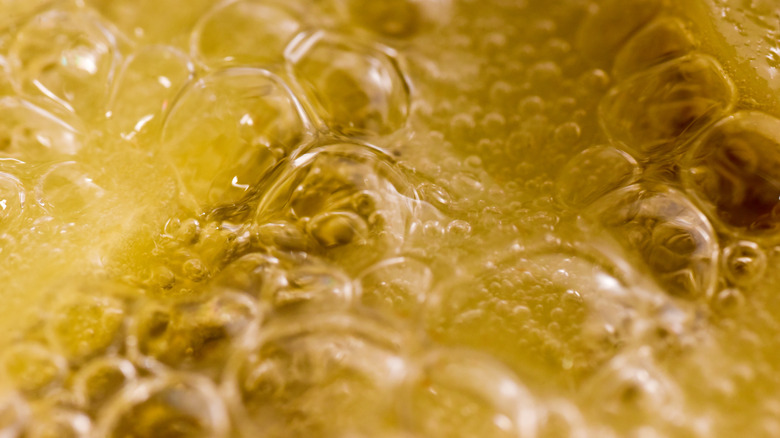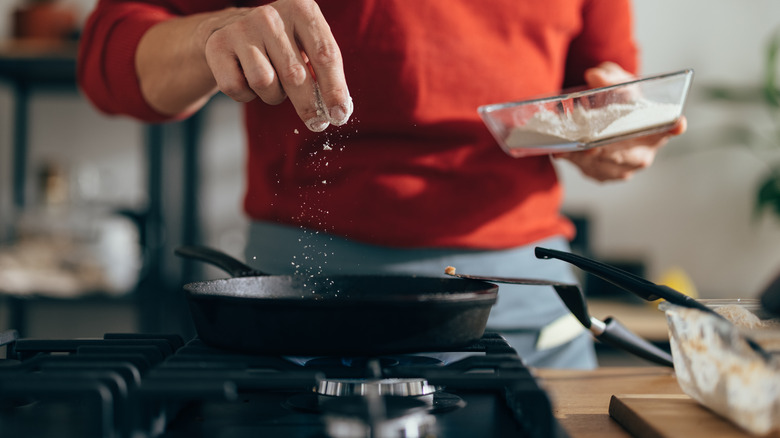Oil Splatters Are A Pain, But A Little Bit Of Salt Can Prevent Them
Cooks who specialize in whipping things up on the stovetop are likely well-acquainted with oil popping out of the skillet and burning their skin or staining their clothes. To many, that annoying oil splatter is chalked up to being the nature of the beast. To others, it's reason enough to avoid cooking on the stove altogether, instead allowing the air fryer to do all the dirty work. However, while it's true that cooking the best bacon or chicken on the stovetop can make it difficult to avoid oil spray, it isn't necessarily the case across the board. In fact, for some stovetop recipes, there's a simple and effective way to prevent that frustrating splatter altogether.
When cooking up veggies or meats that only require a small amount of oil, all you need to do is add some salt to the pan ahead of cooking to greatly reduce the amount of splatter that the oil creates. This easy fix doesn't work for every dish you cook, but it is likely to save you a fair share of stains and burns the next time you're putting in work in the kitchen.
How salt stops oil splatters when cooking on the stove
This trick is an old yet underutilized technique that makes quite a lot of sense when you really think about it. Oil splatters because the food added to the oiled pan has moisture on or within it. When that moisture hits the hot oil, it reacts by sporadically popping out of the pan in all directions. However, because of salt's ability to absorb moisture, its presence in the pan limits the amount of water that the oil is forced to react to, thus greatly reducing the amount of splatter that occurs.
As effective as this trick is, it should be limited to sautéing. Adding salt to your oil is a poor choice for pan-frying and deep-frying, as the salt will break down the oil very quickly. This both reduces the lifespan of the oil and can add unwanted flavors to fried foods like crispy homemade french fries. Instead, it is recommended to dry these foods as much as possible before frying so that there is no moisture for the oil to react to in the first place.

